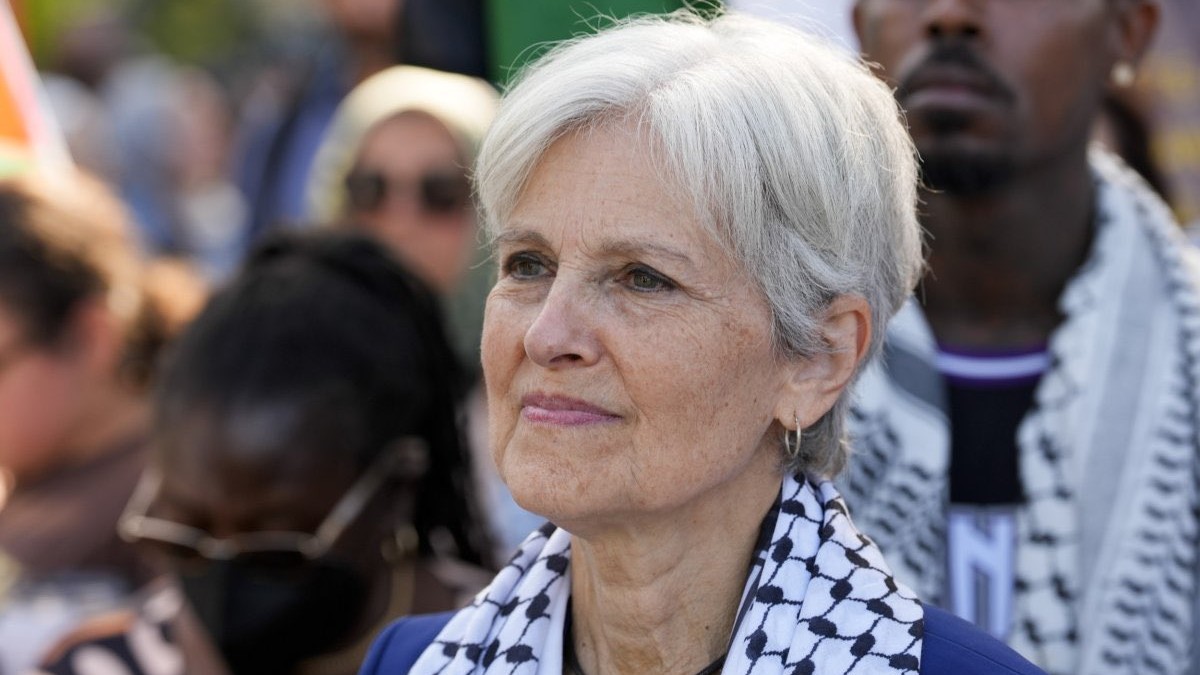The Abandon Harris movement that sprouted late last year out of the widespread outrage over the Biden-Harris administration’s support for the ongoing Israeli war on Gaza has officially endorsed the Green Party’s Jill Stein for US president.
The endorsement is the first of its kind for Stein and the Green Party, with the Abandon Harris campaign being the first major Muslim-led political group to endorse her campaign this election cycle. Last month, a smaller group, the Muslim American Public Affairs Council NC, also endorsed Stein.
“We are not choosing between a greater evil and a lesser evil. We are confronting two destructive forces: one currently overseeing a genocide and another equally committed to continuing it. Both are determined to see it through,” the Abandon Harris campaign said in a statement released on Monday.



Hey there! I read through Worker’s Paradise and have some thoughts I’d like to discuss if you have the time:
The author does not elaborate on the reasoning for their assertion that voting will never bring into manifestation the will of the workers, except to say:
The Soviet Union lacked the communication infrastructure to be able to allow democracy to actually be able to control the entirety of the huge system. Which is true, for the Soviet Union. At that time.
We have the technology today. We have the computers. We have the AI which can quickly and easily determine the most efficient options for our democratic processes to choose from.
Why do they think big industry can ONLY be developed through market competition? What is the reasoning behind that? (Aside from what they have seen happen in the past, for older generations of people with very different material conditions to our own today?)
This is true. So why are you all so against voting in the United States’ two-party system, when that very voting will continue to allow incredibly high levels of economic development and the GRADUAL socialization of industry and society?
The market has created that large-scale infrastructure. Let’s use it to make the world better.
Then what is it all for? Why do anything if it doesn’t lead to an eventual utopia where everyone has their needs met and we can just hang out in parks and play games all day? Isn’t that what the whole point of this thing is?? Is that NOT what we are striving for?
Marx himself wanted that utopia. We have the means of achieving it today, because, as the author says, we allowed the market to create that large-scale infrastructure. The process worked. We’re here now, and now we inherently deserve to be able to have a say in what we do with it. Because we’re sentient beings. We deserve to have control over our own lives.
This article is merely a defense of capitalism (and the way that China has structured itself in particular). There’s logic behind it, of course, and that’s clearly laid out. But it’s based on presuppositions. It’s based on the idea that this is the ONLY way to achieve that utopia.
In fact, the article itself basically says “resign yourself to the idea of never having control over your life, because you’re never going to create a utopia, so you might as well just be content being a cog in the wheel of the system and be thankful that we who are in control continue to allow you to live” which is no better than the slavery system that (I thought) we (and marx) are trying to get society away from!
This is because Reform or Revolution is a “solved question” elsewhere. In a 20 minute article, there’s not much room to go over everything.
Yes, that’s why as the PRC continues to develop and socialize, it becomes more capable of democratization. The point isn’t that the USSR wasn’t democratic. It was, just not a fantasy.
Markets are efficient at centralization. It isn’t only possible via markets, it just comes with slower growth and recessions. More on that in Socialism Developed China, Not Capitalism.
Because the bourgeois state cannot simply be reformed. The State and Revolution is the clearest overview of why.
Yes, let’s overthrow the bourgeoisie so this can happen! Exactly.
The point is to continue advancing, not to come up with an idea and force it into reality. That’s the difference between Utopian and Scientific Socialism. We still want all of what you said.
Marx was anti-utopian. You are correct in saying we can socialize now, but haven’t analyzed the means.
It’s a defense of socialist markets as a means of stabilizing growth towards Communism (not utopia).
No, it says building Communism takes time even after siezing the means of production. Check out the other texts I linked.